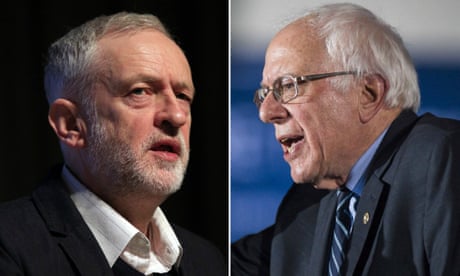I RECENTLY received an extraordinary email from a troubled young Kashmiri in Srinagar. Days before the Indian authorities turned off the internet, Saif (not his real name) had watched on YouTube the 45-minute video documentary Crossing the Lines — Kashmir, Pakistan, India that I had helped make in 2004 and mostly agreed with its non-partisan narrative. A nationalist boy turned stone thrower, Saif is outraged by the brutality of Indian occupation. He is fortunate, he says. His 14-year-old second cousin lost his left eye to pellets.
Saif continues to fight India but is worried. Protesters of his father’s generation were largely nationalist, but today’s are a mixed bunch. IS and Pakistani flags are often unfurled after Friday prayers, azadi demonstrations resound with calls for an Islamic state in Kashmir, and Nasim Hijazi’s cartoon history of Muslim rule in India Aur Talwar Toot Gayee is serialised by local Urdu papers. Significantly, Burhan Wani was laid in the grave by a crowd of thousands, wrapped in a Pakistani flag, and celebrated as a martyr rather than Kashmiri freedom fighter.
Why this change? The present government — Narendra Modi’s — surely stands guilty. By reducing space for democratic discourse, it promotes radicalisation. Unlike Vajpayee’s accommodative politics, India offers little beyond the iron fist and draconian laws such as AFSPA. The BJP-PDP alliance — shaky to start with — is almost over as each blames the other for the two per cent voter turnout in last month’s by-elections. Hindutva’s religiosity is displacing Nehru’s secularism all across India, and Indian democracy is yielding to Hindu majoritarian rule.
Kashmiri nationalists must realise the grave dangers of giving more space to religious extremists.
But blaming Modi is half an explanation, perhaps even less. In Palestine, after decades of struggle against Israeli occupation, the secular PLO lost out to the religious radicalism of Hamas. In Arab countries, young Muslims dream of fighting infidels and dying as martyrs. In Pakistan, the celebrated army operations Raddul Fasaad and Zarb-i-Azb target armed militants fighting for a Sharia state. Last week, the Higher Education Commission showed its concern by convening a meeting of 60 university vice chancellors in Islamabad on rising extremism in Pakistani campuses.
Extremism has further complicated an already complicated Kashmir situation. What now? For long, Kashmiris, Pakistanis, and Indians have wagged fingers at the other for the 100,000 lives lost over three decades. Where lies the future? Does any solution exist?
A short retreat into mathematics: some equations indeed have solutions even if they need much effort. But other equations can logically be shown to have no solution – nothing will ever work for them. There is still a third type: that where solutions are possible but only under very specific conditions.
Kashmir is not of the first category. Everything has been tried. Delhi and Islamabad have created clients among the Valley’s leaders and political parties, and subversion is a widely used instrument. But they too have turned out to be useless. Elections and inducements have also failed to produce a decisive outcome, as have three Pakistan-India wars. A fourth war would likely be nuclear.
All parties stand guilty. India, under various Congress governments, had once projected itself as a secularist democracy distinct from an Islamic, military-dominated Pakistan. It appeared for that reason to be preferable, but in practice its unconscionable manipulation of Kashmiri politics led to the 1989 popular uprising, sparking an insurgency lasting into the early 2000s. When it ended 90,000 civilians, militants, police, and soldiers had been killed. Remembered by Kashmiri Muslims for his role in the 1990 Gawkadal bridge massacre, Governor Jagmohan received the Padma Vibhushan last year.
Pakistan tried to translate India’s losses into its gains but failed. It soon hijacked the indigenous uprising but the excesses committed by Pakistan-based mujahideen eclipsed those of Indian security forces. The massacres of Kashmiri Pandits, targeting of civilians accused of collaborating with India, destruction of cinema houses and liquor shops, forcing of women into the veil, and revival of Shia-Sunni disputes, severely undermined the legitimacy of the Kashmiri freedom movement.
Pakistan’s ‘bleed India with a thousand cuts’ policy is in a shambles today and jihad is an ugly word in the world’s political lexicon. Say what you will about ‘Dawn Leaks’, but Pakistani diplomats who represent Pakistan’s position in the world’s capitals know the world doesn’t care about Kashmir. How else to explain Prime Minister Modi receiving Saudi Arabia’s highest civilian award from King Salman bin Abdul Aziz?
If Kashmir is ever to have a solution — ie belong to the third type of math problem — then all three contenders will need to rethink their present positions.
Thoughtful Indians must understand that cooling Kashmir lies in India’s hands, not Pakistan’s. By formally acknowledging Kashmir as a problem that needs a political solution, using humane methods of crowd control, and releasing political prisoners from Kashmiri jails, India could move sensibly towards a lessening of internal tensions. Surely, if India considers Kashmiris to be its citizens then it must treat them as such, not as traitors deserving bullets. Else it should hand Kashmir over to Kashmiris — or Pakistan.
Thoughtful Pakistanis must realise that their country’s Kashmir-first policy has brought nothing but misery all around. Using proxies has proven disastrous. A partial realisation has led to detaining of LeT and JeM leaders, but Pakistan’s army must crack down upon all Kashmir-oriented militant groups that still have a presence on Pakistani soil. Such groups are a menace to Pakistan’s society and armed forces, apart from taking legitimacy away from those fighting Indian rule.
Thoughtful Kashmiri nationalists — like Saif — must recognise the grave dangers of giving more space to religious extremists. Their struggle should be for some form of pluralistic entity – whether independent or under nominal Indian or Pakistani control. That entity must assure personal and religious freedoms. An ISIS type state with its cruel practices makes mockery of the very idea of azadi and would pave the way for Kashmir’s descent into hell.
Such rethinking would clear the road to peace through negotiations which, though narrowed, still remains open. Every conflict in history, no matter how bitter, has ultimately been resolved. In Kashmir’s case whether this happens peacefully, or after some apocalypse, cannot be predicted.






